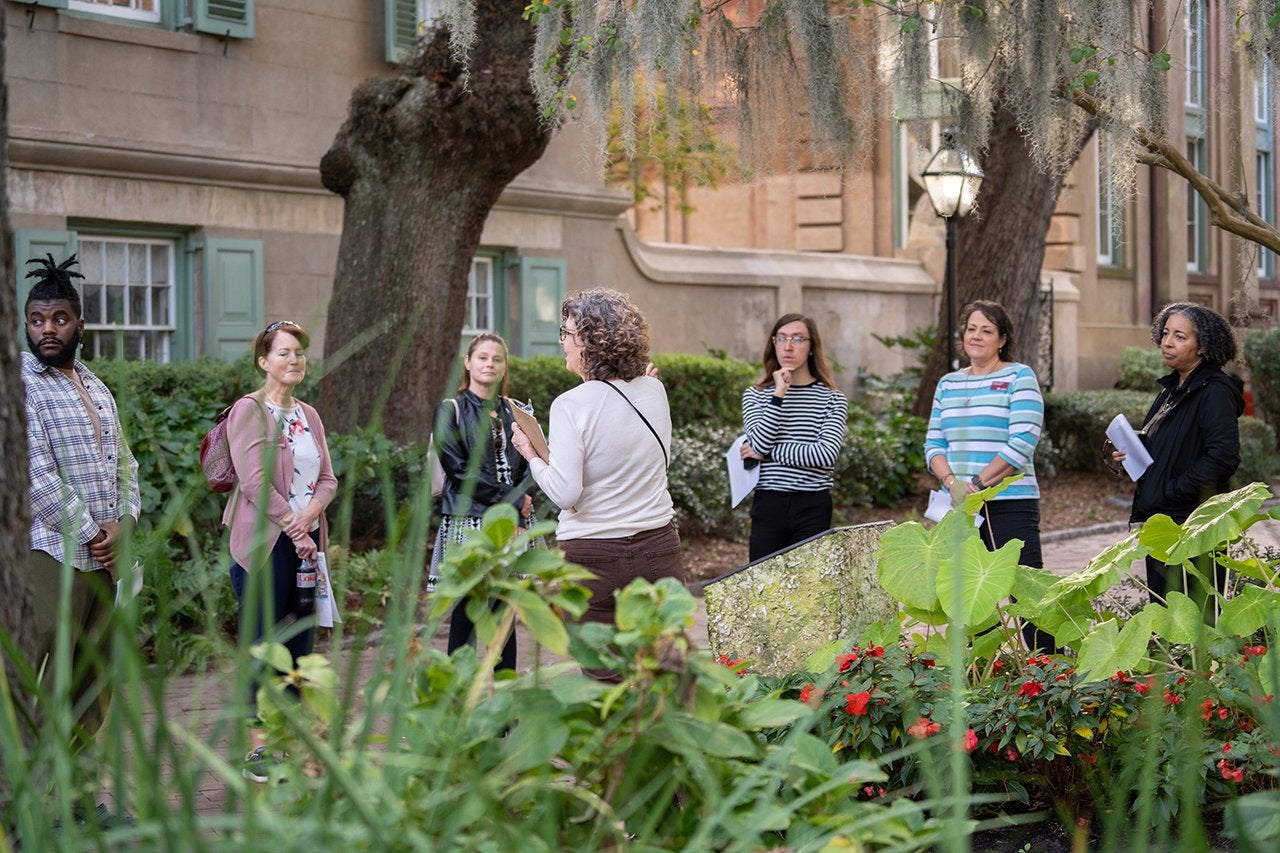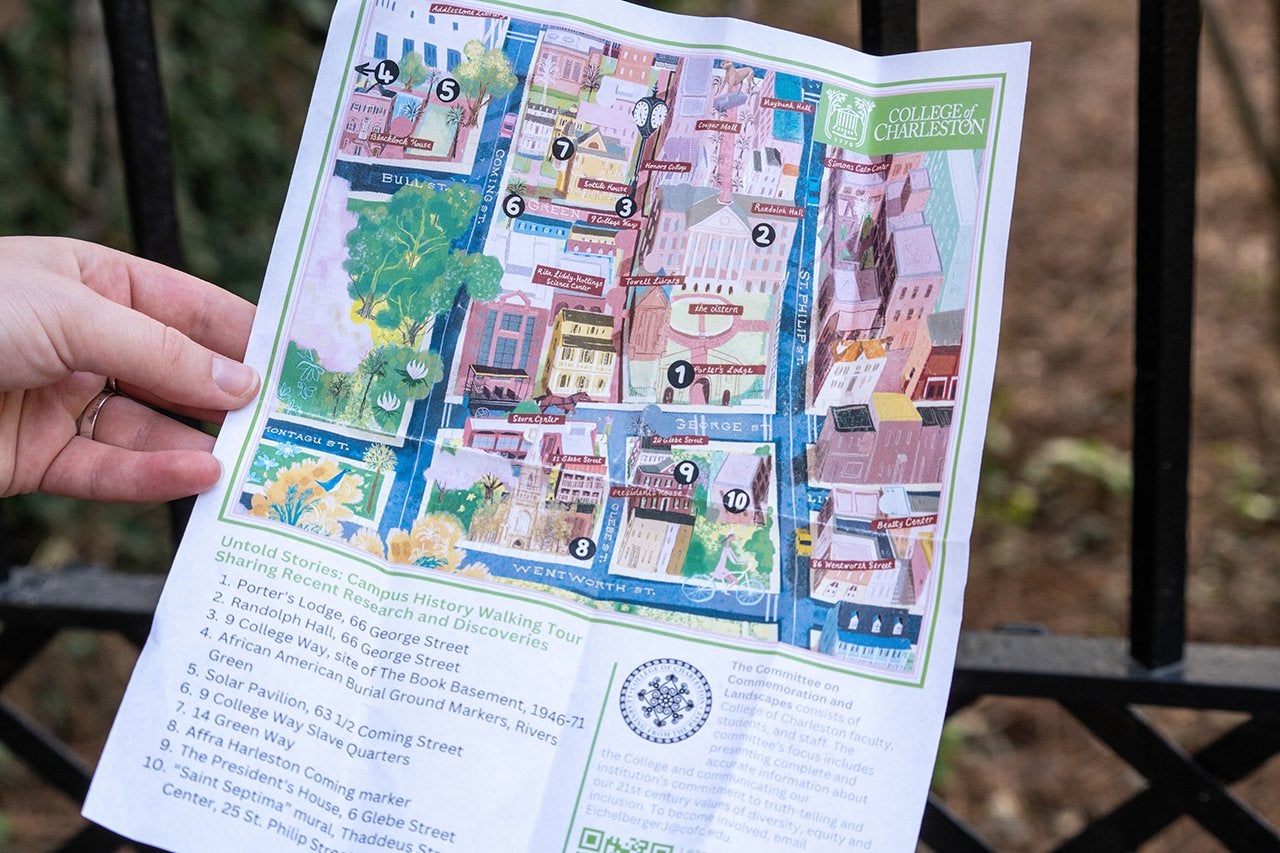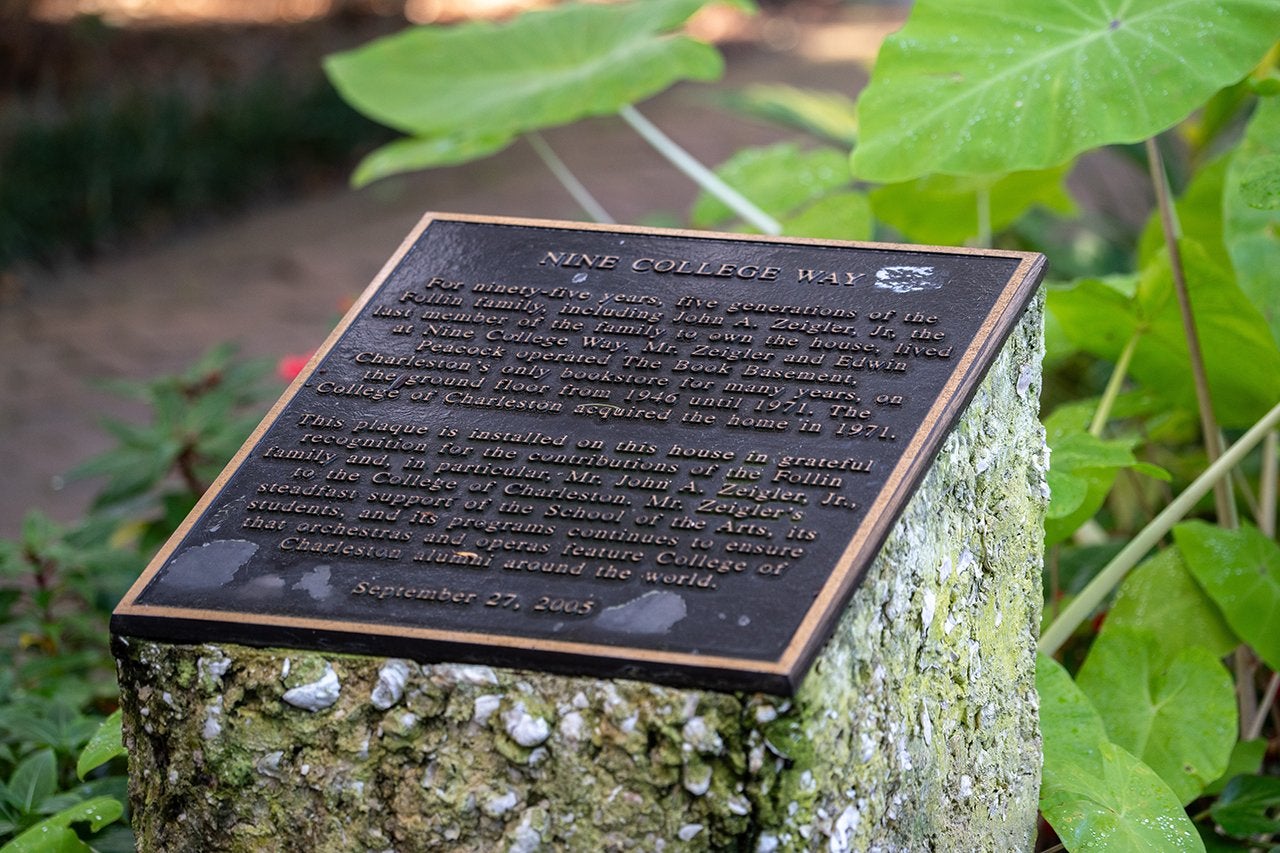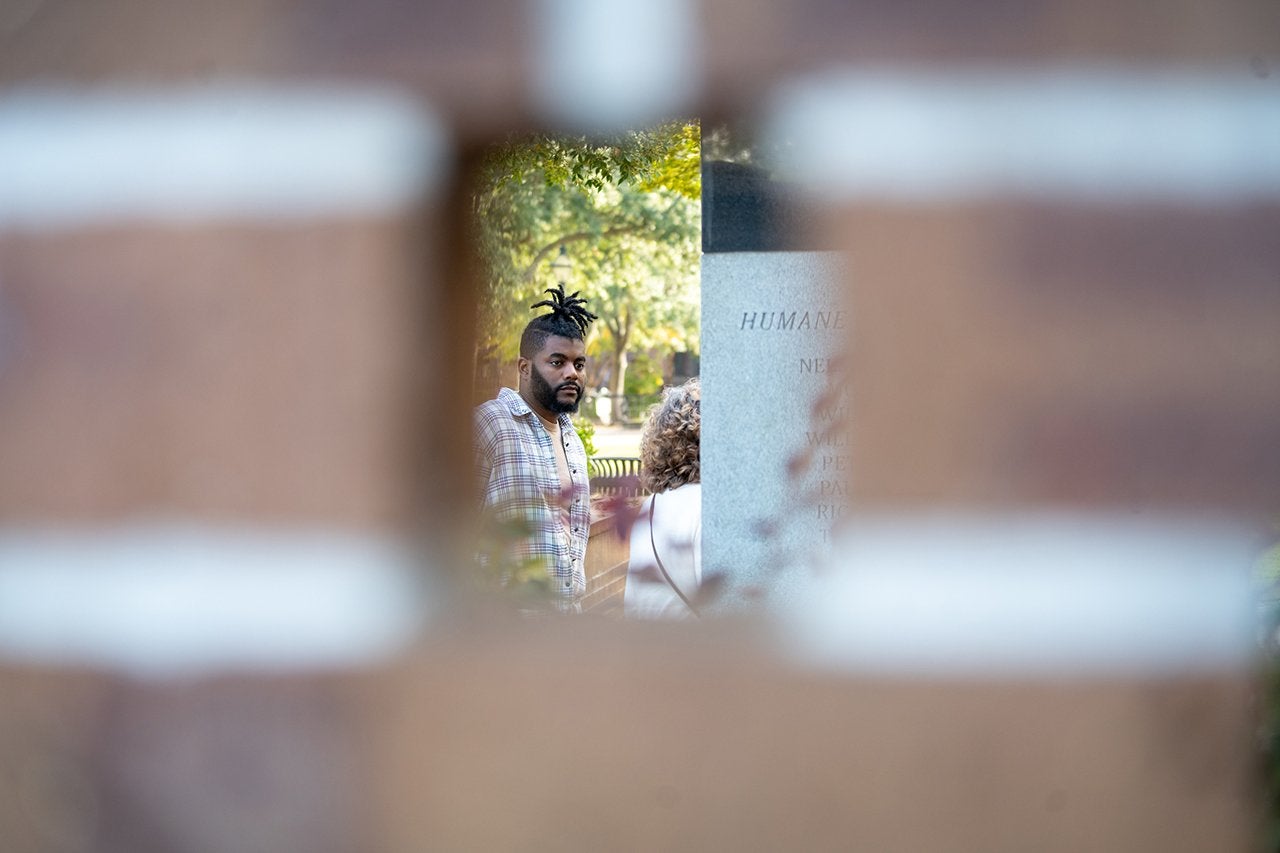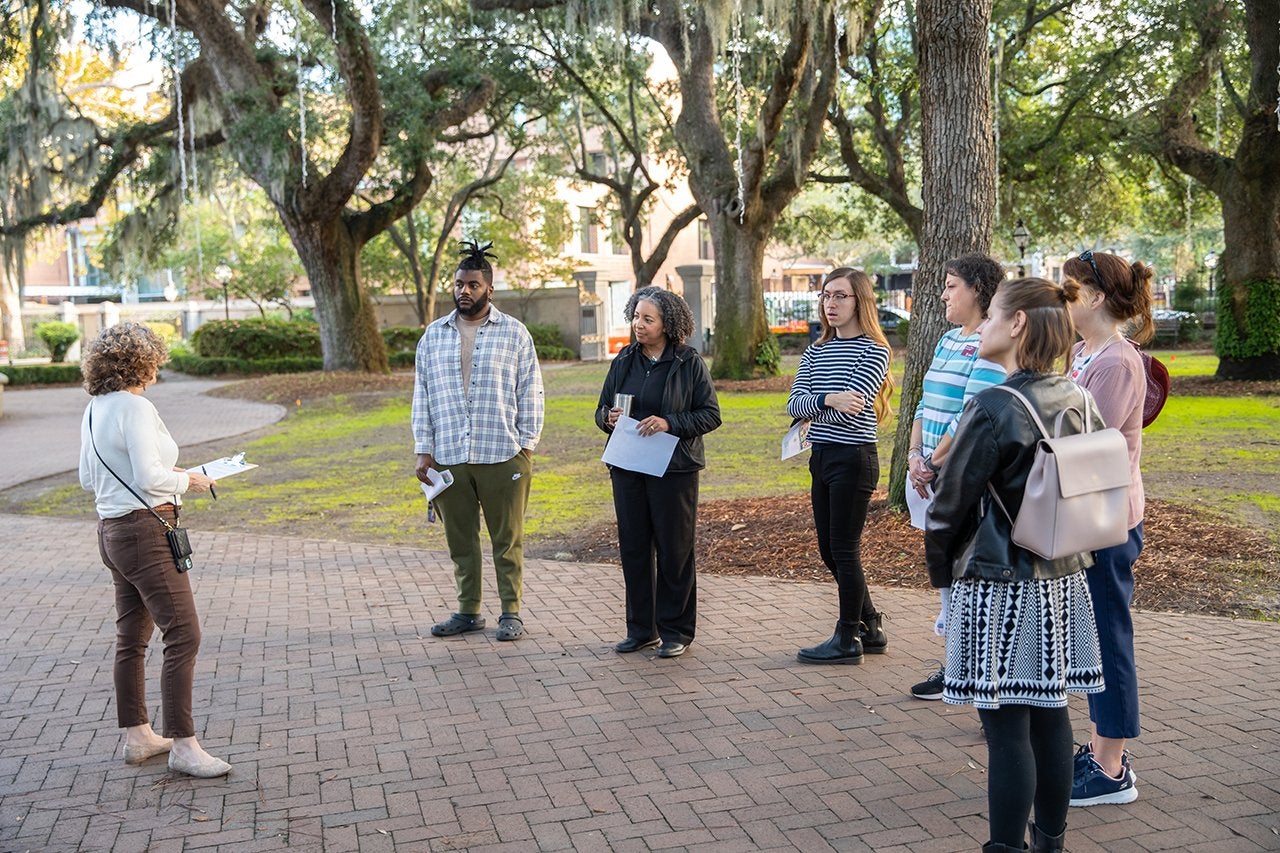The College of Charleston is one of the oldest institutions of higher education in the United States. That legacy is visible in iconic sites on campus such as Porter’s Lodge, Randolph Hall and the birthplace of Septima Clark. In 2020, College of Charleston President Andrew T. Hsu created the College’s Historical Review Taskforce, made up of campus scholars, researchers and other campus representatives to ensure a more thoughtful and complete account of the College’s story.
In 2021, the Historical Review Taskforce recommended the formation of the Committee on Commemoration and Landscapes (CCL). The mission of the CCL is to present complete and accurate information about the College that communicates the College’s commitment to 21st-century values of diversity, equity and inclusion.
Under the leadership of co-chairs Julia Eichelberger, director of Southern studies, and Valerie Frazier ’91 (M.P.A. ’94), associate professor of English and director of the 1967 Legacy Program, the CCL has completed several important initiatives. One of those initiatives, launched in October 2023, is a guided walking tour called “UNTOLD STORIES: Campus History Guided Walking Tour Sharing Recent Research and Discoveries.”
The tour sheds light on the diverse stories and evolution of Charleston, as reflected in the history of the College of Charleston, and honors the contributions of women, LGBTQ+ individuals and people of African, Indigenous and Jewish descent. The tour explores various locations that played a significant role in the College’s history, including the site of Septima Clark’s childhood home and the Septima Clark Memorial Auditorium with its newly installed mural.
RELATED: Find out more about the mural at the Septima Clark Memorial Auditorium.
“The ‘UNTOLD STORIES’ tour is a testament to the College’s commitment to inclusivity and sharing the often-overlooked narratives that have shaped our institution and community,” says Erica Veal, research archivist and interpretation coordinator in the Avery Research Center for African American History and Culture and chair of the CCL Subcommittee on Interpretation.
In addition to the guided tours, the College is offering academic resources to engage students and provide a more comprehensive understanding of its history. Ashley Dennis, assistant professor of history, is currently teaching a graduate seminar on public history that addresses questions about people who have been excluded in historical narratives and what is being done to address omissions and misrepresentations. Murray Hannon, a graduate student in the class, is developing a tour called “Women’s Education at the College of Charleston.”

“UNTOLD STORIES” walking tour includes a visit to the Memorial for Historic African-American Cemeteries, located in Rivers Green (Photo by Catie Cleveland)
Looking ahead, the history department is offering a special topics course in the spring of 2024 that focuses on heritage interpretation. Interpretation is a purposeful approach to communication that facilitates meaningful, relevant and inclusive experiences that deepen understanding, broaden perspectives and inspire engagement with the world. The course will give students the necessary skills to become certified interpretive guides (CIGs) through the National Association for Interpretation (NAI).
“The College was originally built for the sons of Charleston’s white elite. The neighborhood around the College was as diverse as the city of Charleston, even if many of our neighbors were not welcomed here,” says Eichelberger. “Today the College has evolved to be a much more welcoming place, and it’s fitting that we should be honoring the lives of the diverse communities that lived and worked here in the past.”

